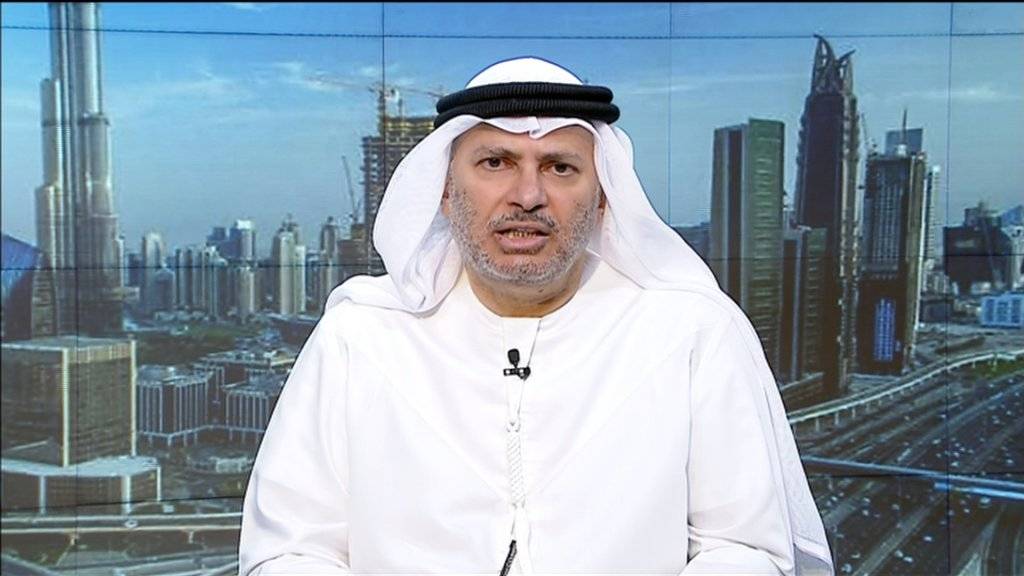Let’s assume Khaled Batarfi is correct: President Trump made the right decision about the Iran nuclear agreement. Batarfi, a prominent columnist and analyst in Saudi Arabia, is one of the stampeding herd of writers and officials in Saudi Arabia and the United Arab Emirates who rushed to praise President Trump for pulling the United States out of the multinational nuclear agreement with Iran.
Foreign ministers, other diplomats, sages of the media—all across the region they have lined up like obedient schoolboys to deliver the same assessment. What they have not done is say what should happen next, because they have no Plan B. They have only the hope that Iran, somehow shocked into submission by Trump’s move, will now roll over, or that the United States will take military action to force it into submission.
As Thomas Pickering, one of the most distinguished career U.S. diplomats, put it at a conference in Washington this week, “They want us to fight while they hold our coat.” He called Trump’s move “preemptive capitulation,” because under the agreement Iran’s nuclear program had been frozen for the next decade, Iran was complying with its provisions, and there was no need to pull the plug now. He said, correctly, that no one in Gulf has offered any realistic alternative.
That, to put it mildly, is not the prevailing opinion in the Gulf, where Batarfi’s comments were typical:
The flaws of the nuclear agreement became all too present and clear as Iran’s ballistic missiles’ program has been advanced and used against Saudi Arabia. Its research facilities are hidden in military bases. Its expansionist strategy reaches the Mediterranean Sea, the Arab Sea and Red Sea shores. Its new fronts encircle allies in Iraq, Israel and the Arabian Gulf. Most importantly to the civilized world, Iran’s sponsorship of terrorism has reached new heights, breadths and depths. Even if all went well with its nuclear deal, few years from now they would be free, and legitimized, to finish what they had started—a nuclear bomb.
Calling Trump and his advisers “wiser” than the previous administration, he said that they “saw through the Obamian appeasement logic” to recognize the grim truth about Iran.
In a similar vein, Anwar Gargash, minister of state for foreign affairs of the UAE, tweeted that “Iran’s rhetoric & aggressive regional actions were the background to a flawed deal. The veneer of Tehran’s compliance contradicted its bellicose policies. President Trump’s decision is the correct one.”

Abdulkhaleq Abdulla, a prominent scholar from Abu Dhabi, praised Trump’s decision at a conference this week and predicted that the “healthy unpredictability” it has created will lead a nervous Iran to be more accommodating. If the United States had continued to honor the agreement, he said, there was “zero chance” of any change.
Saudi Arabia announced its support the same day Trump made the withdrawal official. “The Kingdom of Saudi Arabia supports and welcomes the steps announced by President Donald Trump regarding the United States’ withdrawal from the Iran nuclear deal. The Kingdom also supports reinstating economic sanctions on the Iranian regime, which have been suspended under the nuclear deal,” it said in a statement posted on the website of its embassy in Washington. It said that the Iranians
took advantage of the economic benefits afforded by the lifting of sanctions and used them to continue its destabilizing activities in the region, especially by developing its ballistic missiles and supporting terrorist organizations in the region, including Hizbollah and the Houthi militias, which used the capabilities provided by Iran to target civilians in the Kingdom of Saudi Arabia and Yemen, as well as, repeatedly targeting international shipping lanes in a blatant violation of UN Security Council resolutions.
The statement also called on “the international community” to confront Iran’s “destabilizing aggression in the region, its support to terrorist groups, particularly Hizbollah and the Houthis [sic] militias, and its support of the Assad regime—who has committed heinous crimes against its people that led to the death of more than half a million civilians, including through the use of chemical weapons.”
Apparently people in Saudi Arabia, the United Arab Emirates, and like-minded sheikhdoms in the Gulf have short memories. In their rush to load adulation on Trump, they have conveniently forgotten that their countries all endorsed the Iran agreement while Obama was president. After a summit meeting of Obama and leaders of the six countries of the Gulf Cooperation Council in Riyadh in 2016, they issued a joint statement saying that they all “reiterated support for the Joint Comprehensive Plan of Action (JCPOA) with Iran, noting that successful implementation of the JCPOA, thus far, has blocked Iran’s pathways to a nuclear weapon and enhanced regional security and stability.”
Well, that was then, before anyone imagined that Donald Trump would become president. Now that the Trump has jettisoned the agreement and possibly turned Iran loose to resume the nuclear programs that it had curbed, the Saudis are talking about acquiring their own nuclear weapons if Iran does so. Both Mohammed bin Salman, the crown prince and defense minister, and Foreign Minister Adel al-Jubeir have said that they would do so.
Those statements, and tepid U.S. responses to them, prompted the Arms Control Association, a prominent anti-proliferation group, to say that Trump’s “reckless decision to violate the Joint Comprehensive Plan of Action, which has blocked Iran’s pathways to nuclear weapons and put in place a robust monitoring system to detect and deter cheating, has not only opened the door to an expansion of Iran’s capability to produce bomb-grade nuclear material, but it has increased the risk of a wider nuclear arms race in the Middle East, which is already home to one nuclear-armed state,” namely Israel.
In fact there are compelling reasons why Saudi Arabia would not pursue nuclear weapons regardless of what Iran does. But it is hard to dispute that a regional arms race is now at least slightly more possible than it was 10 days ago.






